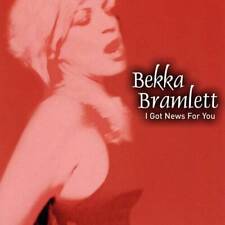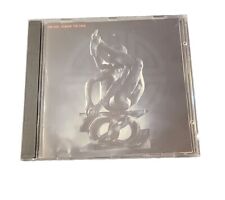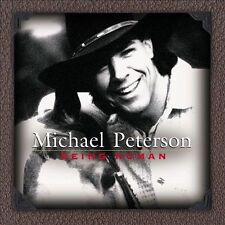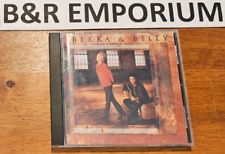|
New York Daily News, August 12, 1997 New Mac Attack The Fleetwood crew joins rock's age of reformation By Jim Farber They fueled their success on sly rumors and true confessions. Twenty years ago, Fleetwood Mac racked up the most successful pop album of its day...the 17 million-selling "Rumours"...by marrying classic melodies and close harmonies to spicy lyrics chronicling the romantic squabbles and bustups of two couples in the band (John and Christine McVie, Stevie Nicks and Lindsey Buckingham). By 1983, the band stopped playing live. By 1987, Buckingham quit altogether, vowing never to speak to the others again. "We were all in our own worlds," Nicks says of that time. "More than the music, I needed to get away from that whole scene," Buckingham adds. Now, more than a decade later, pop's most commercial soap opera has begun a surprising new story line. On April 1, the five most celebrated members of Fleetwood Mac reunited in L.A. for their first full-length show in 14 years. (In '93, the band had a blink-and-you-missed it reformation to play President Clinton's favorite song, "Don't Stop," at his first inaugural). The comeback show has yielded a 90-minute MTV special, which runs Tuesday at 9 p.m.; a subsequent live album, arriving Aug. 19, and a home-video version of the show featuring four extra songs...all chased by a fall tour. None of these decisions was made lightly, the band insists. "I was really worried that we would fall back into old patterns," says Buckingham, 47. "That there would be a lack of high aspiration for the project, which was where it was when we left off. Or that it would feel like rehash." "I didn't know what to expect," says Nicks, 49. "With five people you never know. I was worried it would be argumentative, which it had always been." In fact, Nicks says some old tensions did arise when the band tussled over selecting the CD cover and the press photos. "We had to go through piles of pictures. That makes the band the craziest." Musically, though, it was all smooth sailing, according to Nicks. She says that the band's artistic rapport defined the event's worth, rather than any financial compensation. One might be skeptical about that. The solo careers of the band's three star members had cooled, and Fleetwood Mac itself had been soldiering on as a pale imitation of itself with inferior substitute singers. Nicks counters that she'd just signed a lucrative new solo contract with Warner right before this deal. She insists that "there isn't enough money in the world to pay the five of us to stay together if we weren't having a good time." Buckingham adds, "I was as skeptical of the comeback as anyone. I was worried about it being perceived as cynical." To combat that, the band gave their old songs new meaning, fiddling with arrangements and altering their vocal inflections. They also dredged up obscure older pieces (like Nicks' 1976 B-side "Silver Springs") and added four terrific new songs. Buckingham had the most new songs at the ready, since he was three-quarters of the way through a solo album when the reunion took place. In fact, his album became the accidental ground zero for the comeback. In searching for a harder-rocking sound for his album, Buckingham wound up firing the musicians he'd been working with and asking drummer Mick Fleetwood to sit in on a few tracks. Fleetwood, in turn, suggested they add bassist John McVie. Later, Buckingham asked Christine McVie to consult on the vocals. "One afternoon, there were the four of us all together, saying, 'This is weird,' " explains the guitarist. Buckingham admits he agreed to do the Mac comeback, in part, to lend some attention to his solo project (which will now come out in '98). "Strategically, it would be helpful," he says. Warner Bros., whose profits have been slackening of late, greatly encouraged the return. Then it was down to the individuals to feel each other out. "I could see that Mick was a different person from 10 years ago," Buckingham says. "Stevie was a totally different person than she was 10 years ago. She was much like the person I used to live with." Nicks, likewise, says, "Lindsey deals with me on a much kinder level. And I'm more willing to be open with him. It's nice to think I might go to my grave being Lindsey's friend and not a thorn in his side for all eternity." Not only do the Macs get along better these days, their music fits in snugly with the values of current pop. After seven years ruled by hard riffs, Mac's melodic approach again rules the pop scene. "Fleetwood Mac is no longer the enemy," Buckingham laughs. In fact, both Billy Corgan (of Smashing Pumpkins) and Courtney Love showed up at Mac's comeback tapings. And Love recently covered Nicks' "Gold Dust Woman." Buckingham says that Love also asked her for advice on some recent demos. Worried about his legacy, Buckingham openly hopes his music appeals to fans of Love's generation. "I would be disappointed if [at our tour] there were only 50-year-old women." As a lure for more vibrant fans, the live show and album will stress the band's harder-rocking style and darker lyrics. If anything, the highly personal nature of those lyrics has found more shading and depth over time. "We're more mature now," Nicks says. Or, in the words of Buckingham, "Listening now, somehow the songs ring a little more true." Thanks to Karen for posting this to the Ledge and to Anusha for formatting and sending it to us.
|









